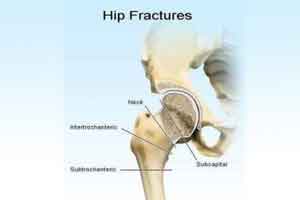VITAMIN D AND CALCIUM SUPPLEMENT REQUIRED FOR HEALING FRACTURE not supported by studies
Prof Dr,DRAM,HIV /AIDS,HEPATITIS ,SEX DISEASES & WEAKNESS expert,New Delhi,India, +917838059592
There has been a surge of interest regarding the benefits of vitamin D supplementation to prevent fractures. But can it also make them heal more quickly once they have occurred—that is, is supplementation of vitamin D beneficial for fracture healing? We found 13 studies that met our inclusion criteria, 11 of these were performed in animals. Two animal studies showed negative, 2 neutral, and 7 positive results. One clinical case series in humans was inconclusive in our opinion, and one randomized double-blind placebo-controlled trial showed that supplementation of vitamin D3 and calcium in elderly women with reduced bone mass and a proximal humerus fracture had a positive influence on bone healing. The major weakness of the latter study is low number of participants.
 A clear statement on the benefits of vitamin D for fracture healing awaits further trials, but all types of fractures in elderly individuals indicate the need for secondary prevention and the implementation of appropriate guidelines concerning falls, vitamin D, and osteoporosis .Calcium supplements do not replace other osteoporosis treatments such as hormone replacement, bisphosphonates (eg, risedronate )at risk for osteoporosis, the addition of medication or hormonal therapy is necessary in order to slow the breakdown and removal of bone
A clear statement on the benefits of vitamin D for fracture healing awaits further trials, but all types of fractures in elderly individuals indicate the need for secondary prevention and the implementation of appropriate guidelines concerning falls, vitamin D, and osteoporosis .Calcium supplements do not replace other osteoporosis treatments such as hormone replacement, bisphosphonates (eg, risedronate )at risk for osteoporosis, the addition of medication or hormonal therapy is necessary in order to slow the breakdown and removal of bone
A clear statement on the benefits of vitamin D supplementation for fracture healing awaits further trials. There is a huge gap in our knowledge on this topic in humans.All types of fractures in elderly individuals indicate the need for secondary prevention and the implementation of appropriate guidelines concerning falls, vitamin D, and osteoporosis, particularly as the typical elderly patient with a (hip) fracture has relevant vitamin D deficiency.
Guidelines recommend a daily intake of at least 1000 mg of calcium, 800 U of vitamin D, and 1 g/kg body weight of protein as a general measure for osteoporosis prevention.The paucity of human studies begs the question, whether this is due to methodological difficulties and ethical hurdles encountered designing such studies, or due to the possibility that negative study results have been suppressed
- Kidney stones universally present hazard in north india,dillution by water prevent it
- Steroid and placebo effect equally for mild persisting asthma with low sputum eosinophils
- Government wants to fix public healthcare staff shortages with ayush docs: will it work?
- Plea in hc for payment of salaries of edmc, north mcd teachers and doctors
- 7 indian pharma companies named in us lawsuit over inflating generic drug prices
- Woman in up dies after explosion in her mouth during treatment,what is diagnosis?
- Woman in up dies after explosion in her mouth during treatment,what is diagnosis?
- Woman in up dies after explosion in her mouth during treatment,what is diagnosis?
- Air pollution ! mothers organising rally in london,anaesthetist choosing gas,will india follow?
- Cardiac arrest is always not sudden as understood -a study

 Comments (
Comments ( Category (
Category ( Views (
Views (